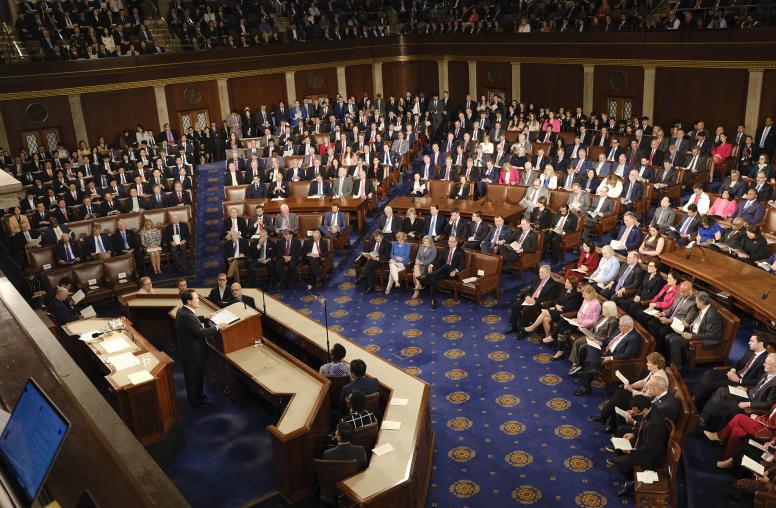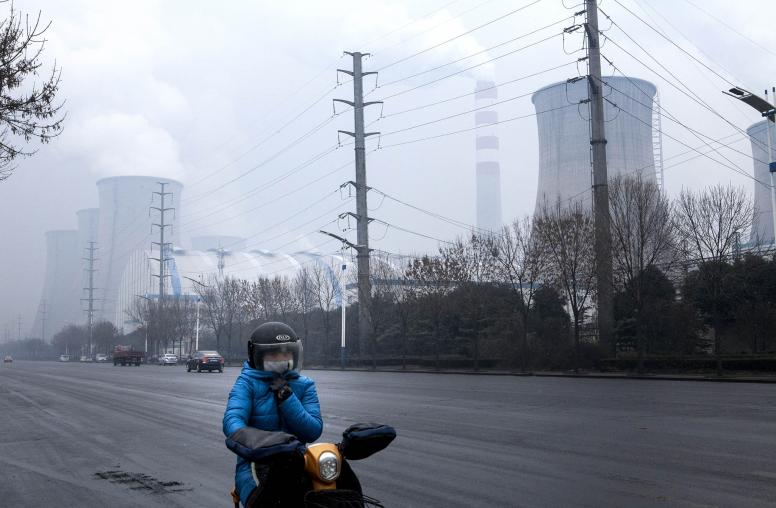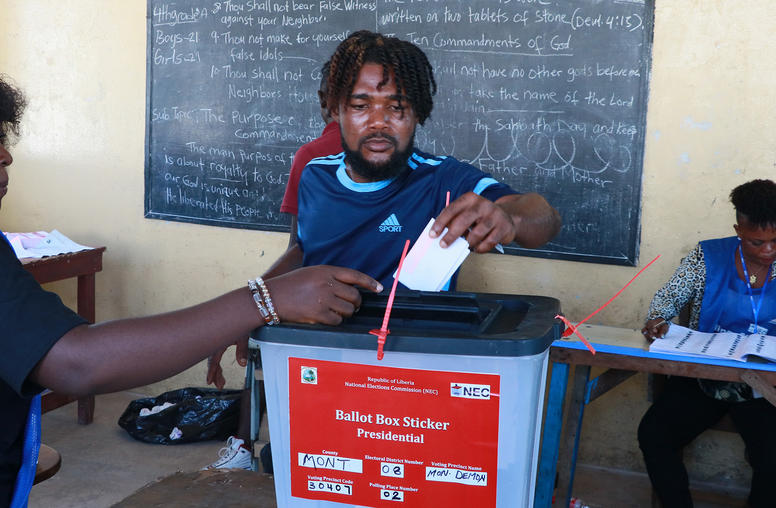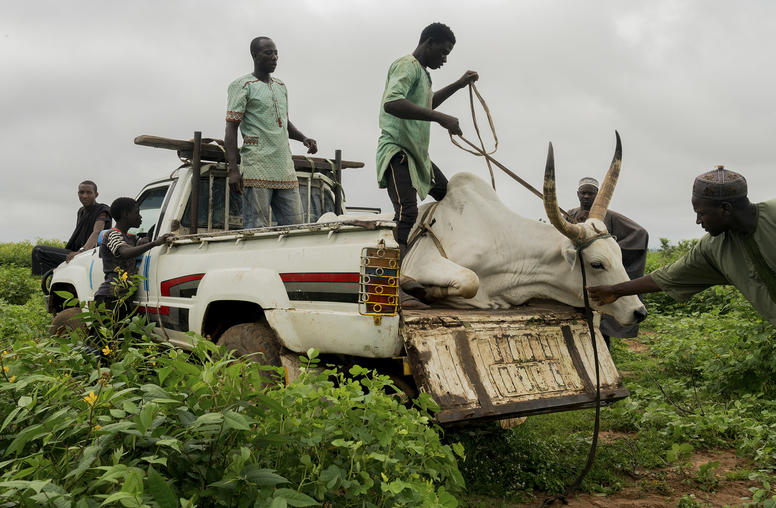Question And Answer
Publications
Articles, publications, books, tools and multimedia features from the U.S. Institute of Peace provide the latest news, analysis, research findings, practitioner guides and reports, all related to the conflict zones and issues that are at the center of the Institute’s work to prevent and reduce violent conflict.

How Congress Can Help Improve Relations with North Korea
Although the Constitution authorizes the president and the executive branch to lead foreign affairs, it also vests the legislative branch with responsibilities that impact the conduct of diplomacy and statecraft. These include the ability to “declare war,” “raise and support armies,” “regulate commerce with foreign nations” and approve treaties and diplomat appointments, as well as general oversight functions and power to appropriate money from the Treasury.

International action on climate change is failing. How can it be strengthened?
After a record-breaking 2023, consolidated climate change science clearly shows that the earth’s temperature over the last 12 months was more than to 1.6oC above the pre-industrial average. This makes the most ambitious temperature goal of the Paris Agreement — holding the increase in global temperature below 2°C above pre-industrial levels — no longer scientifically feasible. Most estimates suggest that the increase will be 2.9oC or more by 2100. Meanwhile, international action under the Paris Agreement is faltering. “We are on a highway to climate hell with our foot still on the accelerator,” U.N. Secretary-General António Guterres said two years ago.

To Help Stabilize West Africa, Bolster a Key Partner: Nigeria
Continued violence in West Africa is sharpening America’s critical challenge to reduce extremism and violence, particularly in the Sahel. Violent deaths in three western Sahel nations surged by 38% last year and Niger’s coup has complicated the U.S. military role in the region. The violence is likely to spread further this year into coastal West Africa, a region five times more populous, with commensurately greater security implications for Africa, the United States and the world. A vital partner in stabilizing both regions is Nigeria, and U.S. institutions should consider several priorities for helping it do so.

Liberia Shows a Path Toward Democracy in West Africa
Liberia’s presidential inauguration last week, a peaceful transfer of power between opposed political parties, strengthens its postwar democracy — an achievement that we should highlight as an instructive counterpoint to West Africa’s military coups and other erosions of democracy. While 5 million Liberians confront crises including poverty, corruption and poor infrastructure, their progress in stabilizing from decades of war offers lessons for us all. Liberians’ vital strengths in this peaceful transfer include strong political will, reflected in record voter turnout, and a potent civic history of nonviolent movements for change, buttressed by U.S. support in countering corruption.

Amid Nigeria’s Violence, a Local Peace Process Advances
Next week opens a high-stakes season of risk for Africa’s demographic giant, Nigeria: the one-year countdown to a presidential election to be held amid the upheavals that have killed or displaced hundreds of thousands of people over the past decade. Nigeria’s escalated regional and local conflicts risk fueling a similar escalation in the country’s pattern of election-related violence. But hope for reducing this combined risk is visible in the work of still-young peacebuilding agencies established by several of Nigeria’s state governments. In one region, these agencies have achieved a peace accord to halt a communal conflict that burned down villages and uprooted thousands of people.

For Sahel Stability, U.S. Needs Broader, Coordinated Policy
As military coups and violent insurgencies have spread across Africa’s Sahel over the past decade, U.S. policy has professed to recognize and address their interconnections across the region, notably through the Trans-Sahara Counterterrorism Partnership. Yet this effort remains insufficient to meet the scale and complexity of the violence and the underlying failures of governance.

A Livable Climate Needs Help From Youth; the U.S. Can Foster It
Humanity is at a tipping point. New data confirms 2023 as Earth’s hottest-ever recorded year. Increasing temperatures, rising seas and extreme weather are heightening tension over resources, damaging people’s health and livelihoods, and displacing millions. Young people have one of the largest stakes in climate decisions made today, for they face the lasting environmental consequences of climate change — and the consequent threats to peace and security. Yet youth remain mostly excluded from decision-making on climate. U.S. leadership, via three steps in particular, can bolster genuine youth leadership on climate that prioritizes the welfare of future generations.

What Does the Xi-Ma Meeting Mean for Cross-Strait Relations?
Chinese leader Xi Jinping held talks on April 10 with former Taiwan president Ma Ying-Jeou in Beijing’s Great Hall of the People. The meeting came as tensions between Beijing and Taipei remain high, particularly following Taiwan’s election at the beginning of the year, which saw pro-sovereignty candidate William Lai Ching-te win a historic third term for the ruling Democratic Progressive Party (DPP). Ma served as president from 2008 to 2016, is a member of the Nationalist (KMT) party and is known for advocating closer ties with mainland China.

Transnational Crime in Southeast Asia: A Growing Threat to Global Peace and Security
Organized crime is a significant driver of conflict globally. It preys on weak governance, slack law enforcement, and inadequate regulation. It tears at the fabric of societies by empowering and enriching armed actors and fueling violent conflict. In Asia, criminal groups prop up corrupt and dangerous regimes from Myanmar to North Korea, posing a direct threat to regional stability.

Stability in West Africa: Working With Nigeria’s State Governments
As coups and other setbacks have stymied military-led efforts to stem upheavals in West Africa and the Sahel, a potent new constituency of leaders has just gathered to plan nonviolent strategies to stabilize their own core area of the region: northern Nigeria. In West Africa’s demographic giant, economic crisis is exacerbating intercommunal conflicts, crime and other violence — and Nigeria’s federalism gives vital roles to its states in addressing roots of these problems. Ten recently elected state governors gathered in Washington last month with peacebuilding and development experts, business leaders and senior U.S. officials; they resolved to strengthen and coordinate state-level stabilization strategies — an initiative that international partners should support.